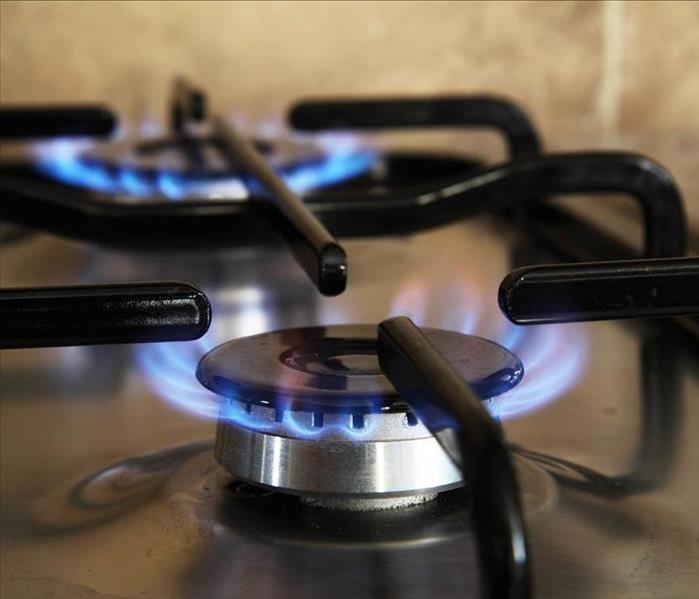How to Prevent Home Fires
10/28/2019 (Permalink)
Fires can be preventable. Educate household members and take safety measures to avoid household fires, this can save your life. The following are some simple steps used to avert a fire event.
Smoking
- Smoke outdoors, especially in homes where oxygen is used. Oxygen can be explosive and will cause a fire to burn faster and hotter.
- If you do smoke indoors, ensure you do not smoke when sleepy, under the influence of alcohol, or when on medication. Many house fires start with sleepy or careless accidents.
- Butts go in an ashtray and should be completely put out.
- To ensure all cigarette butts are cooled, when discarding, soak in water before dumping them in the trash.
Cooking
- Do not leave the stove unattended when cooking. When frying, grilling, or broiling foods be extra cautious. Leaving the kitchen shortly requires you to turn off the stove.
- Children should learn to stay away from the stove unattended, at least three feet.
- Do not wear baggy clothes and ensure your sleeves are rolled up when cooking.
- BBQ grills should be at least 10 feet away from the home, this includes being 10 feet away from overhanging branches and patio ceilings.
Children
- Teach children the danger of fire and teach them that fire is a tool and not to be played with.
- Ensure lighters and matches are out of your children’s reach and sight.
- Do not leave children to their devices when meals are being cooked or when candles are lit in the home.
Electrical & Appliance
- Never use a stove or oven to heat your home.
- Replace all damaged or worn appliance cords right away.
- Do not run cords under rugs or furniture.
- Three-prong plugs belong in three-slot outlets. Don’t force them into two-slot outlets or a two-slot extension cord.
- Lights that flicker or light switches hot to touch need to be replaced.
- Keep combustible objects three feet or more from portable space heaters.
- Keep any combustible liquids away from heat sources.
- Portable generators are to be used outdoors only and should only be refueled outdoors and where well ventilated.
- Your portable heater should come equipped with a thermostat control mechanism and should switch off on its own if the heater falls over.
- Use crystal clear K-1 Kerosene in kerosene heaters.
- Do not overfill kerosene heaters.
- Only use kerosene heaters in a well-ventilated room.
Fireplaces & Woodstoves
- Check for any damage to your fireplaces or woodstoves
- Inspect and clean woodstove pipes and chimneys annually.
- Use fireplace screens that are heavy enough to stop any rolling logs and that is big enough to cover the opening of the fireplace to catch any flying sparks.
- The fire must be out and cool before leaving the home or going to bed.
These safety measures are a good start to being preventing a fire in your home.
Resource: https://www.ready.gov/home-fires




 24/7 Emergency Service
24/7 Emergency Service
